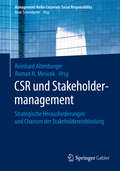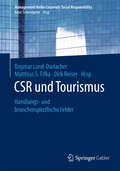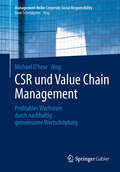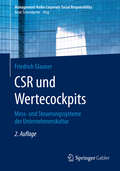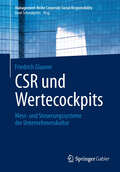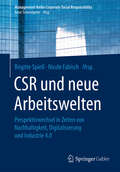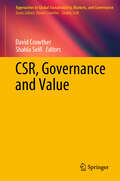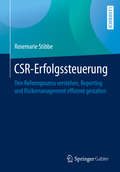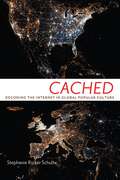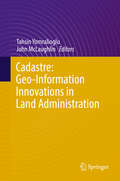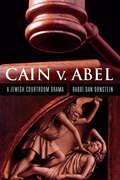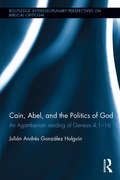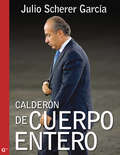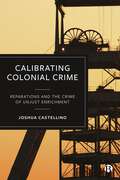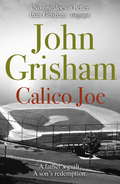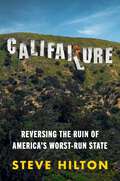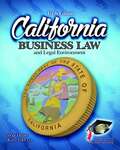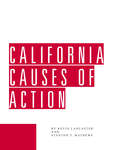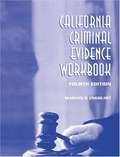- Table View
- List View
CSR und Stadtentwicklung: Unternehmen als Partner für eine nachhaltige Stadtentwicklung (Management-Reihe Corporate Social Responsibility)
by Hans-Hermann Albers Felix HartensteinDieses Buch zeigt auf, wie verschiedene Formen des unternehmerischen Engagements als bereichernde Komponenten in die Stadtentwicklung einflie#65533;en k#65533;nnen. Es benennt die Potentiale und Chancen, die sich f#65533;r Kommunen und die beteiligten Unternehmen durch die stadtbezogene Anwendung der Instrumente von Coporate Social Resonsibility und Corporate Citizenship er#65533;ffnen. Renommierte Experten aus Wissenschaft und Praxis stellen aktuelle CSR-Projekte und -Instrumente vor, die f#65533;r eine nachhaltige Stadtentwicklung eingesetzt werden und analysieren deren Wirkungen auf Stadt- oder Quartiersebene. Die Bandbreite der Kooperationsm#65533;glichkeiten, u. a. in Form von Stadtteilpatenschaften, Corporate Volunteering Initiativen f#65533;r #65533;ffentliche R#65533;ume, Infrastrukturma#65533;nahmen oder Werkswohnungsbauprojekten, werden exemplarisch dargestellt. Anhand der konkreten Beispiele werden effektive Organisationsstrukturen skizziert und Wege zur zielgerichteten Zusammenarbeit zwischen Unternehmen und Kommunen anwendungsorientiert aufgezeigt. Erfahrungen aus der Projektkommunikation und -steuerung werden praxisnah formuliert und handlungsorientiert aufbereitet. Damit eignet sich dieses Buch als wertvolle Grundlage f#65533;r stadt- oder standortbezogene CSR-Ma#65533;nahmen und richtet sich an Unternehmen und CSR-Beauftragte, sowie an Kommunen, Stadtplaner und Vertreter der Raumwissenschaften.
CSR und Stakeholdermanagement: Strategische Herausforderungen und Chancen der Stakeholdereinbindung (Management-Reihe Corporate Social Responsibility)
by Reinhard Altenburger Roman H. MesicekDie Corporate Social Responsibility (CSR)- und/oder Nachhaltigkeitsstrategie beeinflusst die Arten und Formen der Einbindung von Stakeholdern. Dieses Buch zeigt innovative Formen des Stakeholder Managements bzw. Engagements. Anhand von Fallbeispielen aus deutschen und österreichischen Unternehmen werden Erwartungen bzw. Anforderungen konkreter Stakeholder (z. B. NGOs, Lieferanten, Kunden, regionale Partner, Wissenschaft) an Unternehmen aufgezeigt und entsprechend erläutert. Die Vielzahl an gesellschaftlichen und ökologischen Herausforderungen, denen sich Unternehmen aller Branchen gegenübersehen, erfordern eine verstärkte Diskussion des Themas Verantwortung und die Einbindung von Stakeholdern Die aktuelle Diskussion in der Wissenschaft und Beratung zeigt unterschiedliche Zugangsweisen und bietet hilfreiche Ansätze zur Lösung dieses vermeintlichen Kommunikationsproblems.
CSR und Strategisches Management: Wie man mit Nachhaltigkeit langfristig im Wettbewerb gewinnt (Management-Reihe Corporate Social Responsibility)
by Thomas WunderDieses Buch zeigt, wie Nachhaltigkeit in Gesch#65533;ftsstrategien #65533;bertragen und erfolgreich umgesetzt werden kann. Es macht deutlich, welche Relevanz gesellschaftliche Anforderungen f#65533;r die Wettbewerbsvorteile von morgen haben. Nachhaltiges strategisches Management strebt eine Symbiose von wirtschaftlicher, #65533;kologischer und sozialer Wertsch#65533;pfung an. Hierbei geht es weniger um moralisch-ethische Aspekte, sondern um das Identifizieren und Ergreifen von unternehmerischen Chancen. Ob Shared Value, Social Innovation oder Sustainable Business Models - im Kern haben alle diese neueren betriebswirtschaftlichen Konzepte eine Schl#65533;sselbotschaft: Ein Unternehmen kann seine Wettbewerbsf#65533;higkeit verbessern und langfristig wirtschaftlich erfolgreich sein, indem es mit seinem Kerngesch#65533;ft systematisch Gutes f#65533;r die Gesellschaft tut. Das Buch liefert hierzu Ankn#65533;pfungspunkte f#65533;r Strategieinhalte und Strategieprozesse, zeigt aber auch Fallstricke und Paradoxien auf. Es regt die wissenschaftliche Diskussion an und gibt Unternehmen vielseitige, praxisrelevante und zukunftsorientierte Impulse f#65533;r ihre Strategiearbeit.
CSR und Tourismus: Handlungs- und branchenspezifische Felder (Management-Reihe Corporate Social Responsibility)
by Matthias S. Fifka Dagmar Lund-Durlacher Dirk ReiserDieses Buch wird dem Leser eine Antwort auf die Fragen geben, wie sich die Tourismusindustrie in Bezug auf CSR Ma#65533;nahmen in den letzten zwei Jahrzehnten entwickelt hat und wie positiv diese Ma#65533;nahmen heutzutage f#65533;r verschiedene Tourismusbereiche, wie beispielsweise Reiseveranstalter, Destination, Hotels und NGOs gesehen werden. Die Wichtigkeit freiwilliger CSR Ma#65533;nahmen ist heute kaum noch umstritten und sie werden bereits in die Gesch#65533;ftspraktiken vieler Tourismusbetriebe mit einbezogen. Diese Ma#65533;nahmen dienen unter anderem dem verantwortungsvollen Umgang mit nat#65533;rlichen Ressourcen, von denen eine erfolgreiche Tourismusindustrie ebenso abh#65533;ngt, wie von der Zufriedenheit der lokalen Bev#65533;lkerung, der Mitarbeiter, den Zuliefererbetrieben und der G#65533;ste.
CSR und Value Chain Management: Profitables Wachstum durch nachhaltig gemeinsame Wertschöpfung (Management-Reihe Corporate Social Responsibility)
by Michael D'HeurNachhaltig gemeinsame Wertschöpfung als Offensivkonzept für profitables Wachstum in Unternehmen und Gesellschaft Die Fragestellung, wie die Verantwortung eines Unternehmens (Corporate Social Responsibility) konsistent bzw. mit Integrität in Kerngeschäft und Organisation verankert werden kann, beherrscht zunehmend die öffentliche Diskussion. Im Rahmen dieser Diskussion, bietet das Konzept "Nachhaltig gemeinsame Wertschöpfung" einen Managementansatz an, der auf dem Verständnis aufbaut, dass Nachhaltigkeit nur dann im Kerngeschäft eines Unternehmens verankert ist, wenn es in Produkten und Wertschöpfungskette gleichzeitig berücksichtigt wird. Nachhaltigkeit und sozialer Mehrwert für alle Beteiligten sind keine Randthemen mehr, sondern sind Chance über Produkte und die Wertschöpfungskette einen Beitrag zu stiften. Nachhaltig gemeinsame Wertschöpfung bildet hier die Brücke zwischen dem Wunsch nach mehr Nachhaltigkeit und der konkreten Umsetzung im Kerngeschäft. Um den negativen Konsequenzen eines ungebremsten Wirtschaftens und den sich daraus ergebenden Rahmenbedingungen zu begegnen, bietet nachhaltig gemeinsame Wertschöpfung ein Offensivkonzept das profitables Wachstum in ökonomischer, ökologischer und gesellschaftlicher Dimension ermöglicht. Neben dem konzeptionellen Rahmen, wird anhand vielfacher Beispiele aus der unternehmerischen Praxis beschrieben, wie ein Unternehmen nachhaltig gemeinsame Wertschöpfung erfolgreich umsetzen kann.
CSR und Wertecockpits: Mess- und Steuerungssysteme der Unternehmenskultur (Management-Reihe Corporate Social Responsibility #299)
by Friedrich GlaunerUnternehmenswerte sichern den Unternehmenserfolg. Das Wertecockpit steuert sie transparent und nachhaltig ertragssteigernd. Unternehmenswerte beeinflussen messbar den wirtschaftlichen Erfolg herausragender Unternehmen. Das Instrument des Wertecockpits gestaltet die Werte transparent. Es verknüpft betriebswirtschaftliche Ansätze zur Steuerung von Unternehmensprozessen mit interdisziplinären Forschungsergebnissen zu den Treiberkräften menschlichen Denkens und Handelns. Das Buch erläutert, wie und warum die Unternehmenskultur, individuell und nach klaren Regeln operativ gelenkt, ein signifikantes Asset wirtschaftlichen Erfolgs ist. Es zeigt, dass die Steuerung der Wertekultur ein Wertschöpfungsprozess ist, der die Grundlage für alle anderen Unternehmensprozesse bildet. Mit den Instrumenten des Wertecockpits kann er in jedem Unternehmen effizient und schlank umgesetzt werden. In der Darstellung namhafter Unternehmen und Interviews mit ihren CEOs und Gründern wird die Frage beantwortet, auf welche Weise weiche Unternehmensfaktoren einen messbaren Beitrag zur dauerhaften Leistungsfähigkeit von Unternehmen leisten. Das Wertecockpit erfasst mit seinen integralen Instrumenten des C4-Managements und der sieben Treiberfaktoren der Unternehmenskultur alle Bereiche der strategischen und operativen Unternehmensführung.
CSR und Wertecockpits: Mess- und Steuerungssysteme der Unternehmenskultur (Management-Reihe Corporate Social Responsibility)
by Friedrich GlaunerUnternehmenswerte sichern den Unternehmenserfolg.Das Wertecockpit steuert sie transparent und nachhaltig ertragssteigernd.Unternehmenswerte beeinflussen messbar den wirtschaftlichen Erfolg herausragender Unternehmen. Das Instrument des Wertecockpits gestaltet die Werte transparent. Es verknüpft betriebswirtschaftliche Ansätze zur Steuerung von Unternehmensprozessen mit interdisziplinären Forschungsergebnissen zu den Treiberkräften menschlichen Denkens und Handelns.Das Buch erläutert, wie und warum die Unternehmenskultur, individuell und nach klaren Regeln operativ gelenkt, ein signifikantes Asset wirtschaftlichen Erfolgs ist. Es zeigt, dass die Steuerung der Wertekultur ein Wertschöpfungsprozess ist, der die Grundlage für alle anderen Unternehmensprozesse bildet. Mit den Instrumenten des Wertecockpits kann er in jedem Unternehmen effizient und schlank umgesetzt werden.In der Darstellung namhafter Unternehmen und Interviews mit ihren CEOs und Gründern wird die Frage beantwortet, auf welche Weise weiche Unternehmensfaktoren einen messbaren Beitrag zur dauerhaften Leistungsfähigkeit von Unternehmen leisten. Das Wertecockpit erfasst mit seinen integralen Instrumenten des C4-Managements und der sieben Treiberfaktoren der Unternehmenskultur alle Bereiche der strategischen und operativen Unternehmensführung.
CSR und Wirtschaftspsychologie
by Irene LópezDieses Buch fokussiert auf die Ebenen der direkten Implementierung von Corporate Social Responsibility im Unternehmen und im Konsumverhalten. Nicht immer ist das Verständnis für CSR-Maßnahmen bei Mitarbeitern gegeben, doch gerade die Integration von nachhaltigen Strategien in das eigene Bewusstseins und damit das eigene Handeln ist erfolgsentscheidend. Dieses Herausgeberwerk präsentiert psychologische Erkenntnisse und Konzepte die in der Kommunikation mit den eigenen Mitarbeiter, aber auch mit Endverbrauchern, den Konsumenten, genutzt werden können. Spezialbeiträge von Beitragsautoren aus Wissenschaft und Praxis zeigen wie CSR und Wirtschaftspsychologe miteinander zu verknüpfen sind.
CSR und gesunde Führung: Werteorientierte Unternehmensführung und organisationale Resilienzsteigerung (Management-Reihe Corporate Social Responsibility)
by Markus Hänsel Karl KazGesunde Führung und organisationale Resilienz auf Basis einer umfassenden Corporate Social Responsibility (CSR) sind die zentralen Themen dieses Buches. Die Gesundheit von Mitarbeitern, wie auch von Führungskräften, wird vor allem im psycho-sozialen Bereich immer mehr in Mitleidenschaft gezogen: Symptome wie Burnout, Depression und Präsentismus sind Folgen, mit weitreichenden Auswirkungen. Gesunde Führung, die über das klassische Berufliche Gesundheitsmanagement (BGM) hinausgeht, ist daher der Schlüssel für nachhaltige Leistungsfähigkeit. CSR, Gesunde Führung und organisationale Resilienz rücken damit in den Kernbereich des Managements vor. Das Werk stellt hierzu moderne Konzepte sowie aktuelle empirische Studien vor. Zudem werden vielfältige erfolgreiche Praxisbeispiele zur Umsetzung gesunder Führung aufgezeigt. Der Band ermuntert zum unternehmerischen Handeln und gibt erprobte Methoden zu einer sinnvollen und machbaren Praxis für Führungskräfte weiter.
CSR und neue Arbeitswelten: Perspektivwechsel in Zeiten von Nachhaltigkeit, Digitalisierung und Industrie 4.0 (Management-Reihe Corporate Social Responsibility)
by Brigitte Spieß and Nicole FabischDieses Buch zeigt wie ein Paradigmenwechsel hin zu einer neuen werteorientierten Arbeits- und Wirtschaftswelt sowie einer echten Nachhaltigkeitskultur im Sinne einer CSR 4.0 gelingen kann. Denn die fortschreitende Digitalisierung, Automatisierung und Globalisierung werden die Arbeitskultur grundlegend verändern. Der Wunsch nach Sinn-voller Arbeit sowie die Notwendigkeit von generationenübergreifender und interkultureller Zusammenarbeit stellt Führungskräfte vor neue Aufgaben. Die Auswirkungen auf Organisations- und Arbeitsstruktur, Unternehmenskultur, Führung und Personalentwicklung von Unternehmen sind erheblich. Neue Ansätze aus Wissenschaft und Praxis liefern wertvolle Inspirationen für die konkrete Gestaltung der notwendigen Transformationsprozesse.
CSR, Governance and Value (Approaches to Global Sustainability, Markets, and Governance)
by David Crowther Shahla SeifiThis book presents the changing face of social responsibility, showing how it has grown to encompass governance, becoming a vital part of various aspects of human endeavor. From businesses to politics to justice systems, Corporate Social Responsibility (CSR) has expanded its reach, touching every sphere of human activity. What is particularly interesting is how governance failures have highlighted its importance in addressing the economic and social challenges that many organizations face today. This shift has led to a reevaluation of the traditional triple bottom line approach, with governance and supplier behavior emerging as critical components of CSR. Stakeholders, especially consumers, are now actively monitoring companies, influencing their decisions and ultimately impacting their bottom line. The book critically examines these transformations in business behavior through the lenses of governance and CSR, questioning the need for redefining key concepts in the field. Authored by scholars from diverse global backgrounds, it blends theoretical insights with practical considerations, offering a comprehensive exploration of the evolving landscape. Drawing from the tradition of the Social Responsibility Research Network, known for its inclusive approach and emphasis on interdisciplinary research, the book presents varied perspectives and solutions derived from shared best practices. Based on contributions from the Network's recent conference, this book showcases both the unity and diversity of ideas within the field. By examining both theory and practice, it aims to deepen our understanding of these evolving trends and their implications for defining key concepts in social responsibility and governance.
CSR-Erfolgssteuerung: Den Reformprozess verstehen, Reporting und Risikomanagement effizient gestalten
by Rosemarie StibbeDas Lehrbuch behandelt den CSR-Reformprozess, der Unternehmen zur globalen Sorgfaltspflicht (Due Diligence) auffordert. Die CSR-Berichterstattungspflicht, die verbindlichen Kernelemente des Nationalen Aktionsplanes zur Umsetzung der VN-Leitprinzipien für Wirtschaft und Menschenrechte und die Aufforderung zur Implementierung von Risikomanagementsystemen treffen dabei nicht nur große, sondern insbesondere auch mittlere und kleine Unternehmen (KMU) in den Lieferantenketten. Aktuelle empirische Studien zeigen, dass CSR als dualer Erfolgsfaktor in den Modulen „Gesellschaft“ und „Wettbewerbsvorteil“ nur dann erfolgreich sein kann, wenn CSR strukturell im Unternehmen und in den Geschäftsprozessen verankert und die Fortschritte und Ergebnisse messbar sind. Eine adäquate CSR-Erfolgssteuerung bildet die Basis erfolgreicher Unternehmen. Das Lehrbuch soll daher die CSR-Relevanz für Unternehmen aller Größen transparent machen und Umsetzungsblockaden und –hemmnisse abbauen. Es richtet sich an Studierende, die durch ihr Studium befähigt werden sollen, als Vordenkende, Umsetzende sowie Kommunikatorinnen und Kommunikatoren den CSR-Transformationsprozess insbesondere auch in KMU zu steuern. Die Analyseschritte werden in jedem Kapitel jeweils mit mehreren anschaulichen Praxisbeispielen und Hinweisen zu Beratungs- und Unterstützungsangeboten abgerundet.
CSR-Weiterbildung: Einsichten einer Weiterbildung zur gesellschaftlichen Unternehmensverantwortung (essentials)
by Katrin Keller Martin F. MüllerVerantwortung stellt nicht nur eine individuelle Leitdimension dar, sondern wird zunehmend zu einer voraussetzungsvollen Maxime unternehmerischen Handelns. Gerade in Zeiten von scheinbar ungeahnten Möglichkeiten, in denen Entscheidungen langfristige Schäden auf diversen Ebenen verursachen können, verlangt es Menschen und Unternehmen gleichsam ab, die eigenen Handlungen reflexiv auf ihre Konsequenzen hin zu überprüfen. Die jeweilige Perspektive ist voraussetzungsvoll für die Gestaltung verantwortungsvollen Handelns. Gesellschaftliche Unternehmensverantwortung ist eine multiprofessionelle Aufgabe. Mit den in diesem essential vorgestellten fünf STEPs kann es gelingen, Corporate Social Responsibility (CSR) Schritt für Schritt in Organisationen zu implementieren.
Cached: Decoding the Internet in Global Popular Culture (Critical Cultural Communication #23)
by Stephanie Ricker Schulte“This is the most culturally sophisticated history of the Internet yet written. We can’t make sense of what the Internet means in our lives without reading Schulte’s elegant account of what the Internet has meant at various points in the past 30 years.”—Siva Vaidhyanathan, Chair of the Department of Media Studies at The University of VirginiaIn the 1980s and 1990s, the internet became a major player in the global economy and a revolutionary component of everyday life for much of the United States and the world. It offered users new ways to relate to one another, to share their lives, and to spend their time—shopping, working, learning, and even taking political or social action. Policymakers and news media attempted—and often struggled—to make sense of the emergence and expansion of this new technology. They imagined the internet in conflicting terms: as a toy for teenagers, a national security threat, a new democratic frontier, an information superhighway, a virtual reality, and a framework for promoting globalization and revolution.Schulte maintains that contested concepts had material consequences and helped shape not just our sense of the internet, but the development of the technology itself. Cached focuses on how people imagine and relate to technology, delving into the political and cultural debates that produced the internet as a core technology able to revise economics, politics, and culture, as well as to alter lived experience. Schulte illustrates the conflicting and indirect ways in which culture and policy combined to produce this transformative technology.
Cadastre: Geo-Information Innovations in Land Administration
by John Mclaughlin Tahsin YomraliogluThis book highlights the latest improvements in cadastre with examples and case studies from various parts of the world. Authors from different continents, in association with national and international organizations and societies, present the most comprehensive forum to date for cadastre, offering a broad overview of land administration and contemporary perspectives on current research and developments, including surveying, land management, remote sensing and geo-information sciences. Cadastre is a universal concept and is defined as "the work of officially mapping and systemically registering the areas, borders and values of all kinds of land and property". It is normally a parcel-based and up-to-date land information system containing a record of interests in land with rights, restrictions and responsibilities. It may be established for fiscal and legal purposes, to assist in management for better planning and other administrative purposes, and to enable sustainable development and environmental protection. As such, "cadastre" is an important public inventory documenting the records of ownership, bordering and responsibility regarding the land with "title deeds" to parcels and answering the questions of "whose land, where and how much". The materials included in the book can support courses at universities and related training institutions worldwide, and will greatly improve readers' understanding of the scholarly fields involved in cadastre: land registration and management, surveying and mapping, and geo-information management, land governance, land taxation and public administration etc.
Cain v. Abel: A Jewish Courtroom Drama
by Rabbi Dan OrnsteinEnter the packed courtroom and take your seat as a juror on the Cain v. Abel trial. Soon, the prosecution and defense attorneys (angels from Jewish legend) will call Cain, Abel, Sin, Adam, Eve, and God to the witness stand to present their perspectives on the world&’s first murder. Great Jewish commentators throughout the ages will also offer contradictory testimony on Cain&’s emotional, societal, and spiritual influences. As jurors, when we mete out Cain&’s punishment, must we factor in his family history, psychological makeup, and the human impulse to sin? In this highly eclectic and gripping compilation of insights by Jewish commentators on the Cain and Abel story, courtroom scenes are juxtaposed with the author&’s commentary, advancing novel insights and introspection. As each of us grapples with Cain&’s actions, we confront our own darkest traits. If Cain is a symbol for all humanity, what can we do to avoid becoming like him? Furthering this conversation, Rabbi Dan Ornstein includes a discussion and activity guide to promote open dialogue about human brokenness and healing, personal impulses, and societal responsibility.
Cain, Abel, and the Politics of God: An Agambenian reading of Genesis 4:1-16 (Routledge Interdisciplinary Perspectives on Biblical Criticism)
by Julián Andrés González HolguínThe Genesis story of Cain’s murder of Abel is often told as a simplistic contrast between the innocence of Abel and the evil of Cain. This book subverts that reading of the Biblical text by utilising Giorgio Agamben’s concepts of homo sacer, the state of exception and the idea of sovereignty to re-examine this well-known tale of fratricide and bring to the fore its political implications. <P><P>Drawing from political theory, philosophy, and psychoanalysis, this book creates a theoretical framework from which to do two things: firstly, to describe and analyse the history of interpretation of Genesis 4:1-16, and secondly to propose an alternative reading of the Biblical text that incorporates other texts inside and outside of the Biblical canon. This intertextual analysis will highlight the motives of violence, law, divine rule, and the rejected as they emerge in different contexts and will evaluate them in an Agambenian framework. <P><P>The unique approach of this book makes it vital reading for any academic with interests in Biblical Studies and Theology and their interactions with politics and ethics.
Calderón de cuerpo entero
by Julio Scherer GarcíaEn la plenitud de sus facultades como periodista y escritor, Julio Scherer García entrega un nuevo libro sobre el presidente en turno, que no sólo lo muestra "de cuerpo entero" sino que explica por qué durante el presente sexenio México ha vivido una de sus peores crisis, sumido en el estancamiento económico, el crecimiento de la pobreza, la corrupción y la violencia. «La política del presidente Calderón lo ha llevado por caminos peligrosos. Ante la historia es ya un hombre en entredicho.» En este libro Julio Scherer García exhibe una serie de documentos irrebatibles que muestran los ilícitos sobre los cuales tanto se ha hablado en torno al controvertido proceso que llevó a Felipe Calderón a la Presidencia de la República. Asimismo, propone un retrato completo de quien ha gobernado este país durante los últimos cinco años con los resultados que todos conocemos, reuniendo testimonios comprometedores y categóricos sobre el comportamiento discutible, por decir lo menos, del actual mandatario. El reportero, acucioso y consciente de la relevancia de su indagación periodística, se conjuga en estas páginas con el escritor dueño de su oficio y siempre comprometido con su experiencia personal, lo que le permite arrojar luz sobre temas como la traición o la muerte, tan presentes en este recuento terminante acerca de un presidente que concluye su mandato en medio de la desolación y la violencia.
Calibrating Colonial Crime: Reparations and The Crime of Unjust Enrichment
by Joshua CastellinoThis profound book by leading socio-legal scholar Joshua Castellino offers a fresh perspective on the lingering legacies of colonization. While decolonization liberated territories, it left the root causes of historical injustice unaddressed. Governance change did not address past wrongs and transferred injustice through political and financial architectures.Castellino presents a five-point plan aimed at system redress through reparations that addresses the colonially induced climate crisis through equitable and sustainable means. In highlighting the structural legacy of colonial crimes, Castellino provides insights into the complexities of contemporary societies, showing how legal frameworks could foster a fairer, more just world.
Calico Joe: An unforgettable novel about childhood, family, conflict and guilt, and forgiveness
by John Grisham'No one does it better than Grisham' - Telegraph A father's guilt. A son's redemption. Thirty years have passed since eleven-year-old Paul Tracy watched his troubled father, Warren, a pitcher for the New York Mets, clash with his childhood hero, the Cubs' golden-boy Joe Castle, in a contest from which no winners emerged.Now the news that his father is dying brings the memory of that day flooding back. Deciding that it's time to face up to what really happened on that baseball field in 1973, father and son make their way to Calico Rock, Arkansas, where either redemption or rejection awaits them.What readers are saying about CALICO JOE'Hooked from start to finish' - 5 STARS'Riveting' - 5 STARS'A delicious meal of a book!' - 5 STARS 350+ million copies, 45 languages, 9 blockbuster films:NO ONE WRITES DRAMA LIKE JOHN GRISHAM
Calico Joe: An unforgettable novel about childhood, family, conflict and guilt, and forgiveness
by John GrishamAn unforgettable novel about childhood, family, conflict and guilt from America's greatest storyteller John Grisham.Thirty years have passed since eleven-year-old Paul Tracy watched his troubled father, Warren, a pitcher for the New York Mets, clash with his childhood hero, the Cubs' golden-boy Joe Castle, in a contest from which no winners emerged.Now the news that his father is dying brings the memory of that day flooding back. Deciding that it's time to face up to what really happened on that baseball field in 1973, father and son make their way to Calico Rock, Arkansas, where either redemption or rejection awaits them.(P)2012 Random House Audio
Califailure: Reversing the Ruin of America's Worst-Run State
by Steve HiltonSteve Hilton tackles the (literally) burning question: What will it take to save California?California is a "model for the nation," Governor Gavin Newsom keeps telling us. "We're following a formula for success." In Califailure, Hilton compellingly captures exactly where this far-left experiment has gone fundamentally—catastrophically—wrong.Great cities like Los Angeles, San Francisco, and Oakland collapsed into squalor as crime and homelessness were allowed to explode. The state that used to pride itself as the home of innovation and opportunity became the state with the worst rate of poverty, highest unemployment, and most hostile business climate in America—as well as the highest taxes.How did this happen, and what is needed to turn things around? Hilton identifies the nine key "pathologies"—from Elitism to Cronyism to Narcissism—that define the ideology at the heart of California's decline. And he lays out a comprehensive program of policy reform ("CaliFuture") that will restore the Golden State to its rightful place as the very best of America.Californians are starting to wake up from the long and fitful nightmare. In 2024 far-left politicians were removed from leadership positions in San Francisco and Los Angeles. Proposition 36, which in the words of its proponents "makes crime illegal again," passed overwhelmingly with majorities in every county.Califailure is what happens when Democrats get everything they want. Increasingly, it's not what Californians want. This book explains why America must reject it, too.
California Business: Law and Legal Environment
by Kim Tyler Walter Roy Huber William McGrathPublished in 2018, this newest edition of California Business Law has undergone major C-ID renovations, including the title. It is now the 5th edition of California Business Law (Legal Environment of Business). <p><p>There is a reason for this change, that includes among other things a mandate from the Community College Chancellor’s Office (Senate) regulating the material necessary to include in a Business Law or Legal Environment of Business book in order to qualify it for transfer to the Cal-State or UC System. They have adopted a “universal” C-ID numbering system of 120 (Business Law) and 125 (Legal Environment). Although not all community colleges use this numbering system, they are required to adhere to the topics enumerated in the list.
California Causes of Action
by Kevin Lancaster Stanton T. MathewsNo longer will you have to sift through opinion after opinion to find one that recites all the elements of a cause of action. California Causes of Action delivers both the elements and the supporting decisions, plus affirmative defenses, related causes of action, remedies, and statutes of limitations. This useful resource will help you draft pleadings, conduct discovery, marshal evidence, prepare jury instructions, make and respond to motions, and prepare appellate briefs for over 155 causes of action in 21 practice categories, including: * Negligence * Emotional Distress * Physical Torts * Fraud and Negligent Misrepresentation * And more! California Causes of Action helps you avoid the cost, hassle, and risk of a demurrer by providing clear explanations of each element and annotated case notes. Drafting an answer or a cross complaint is also a breeze. With the detailed affirmative defenses for each cause of action, you'll never second-guess the strength of your response again. Write with ease and confidence; write with California Causes of Action.
California Criminal Evidence Workbook
by Marvin G. EngquistThe purpose of this Workbook is to provide the student with an outline for notes on the basic elements of criminal evidence. When taken to each class, this workbook will provide the student with the opportunity and space to write information related to various parts of this subject. The source for this information is the Evidence Code, your instructor, and the appropriate textbook assigned for this course. Your instructor will describe, illustrate, and explain the information on which your notes should be based. Should you have any difficulty in deciding which notes to write, ask your instructor for additional information. The information that you write will help you understand the material presented as well as assist you in preparation for quizzes, examinations, term projects, or case briefs which may be assigned.

